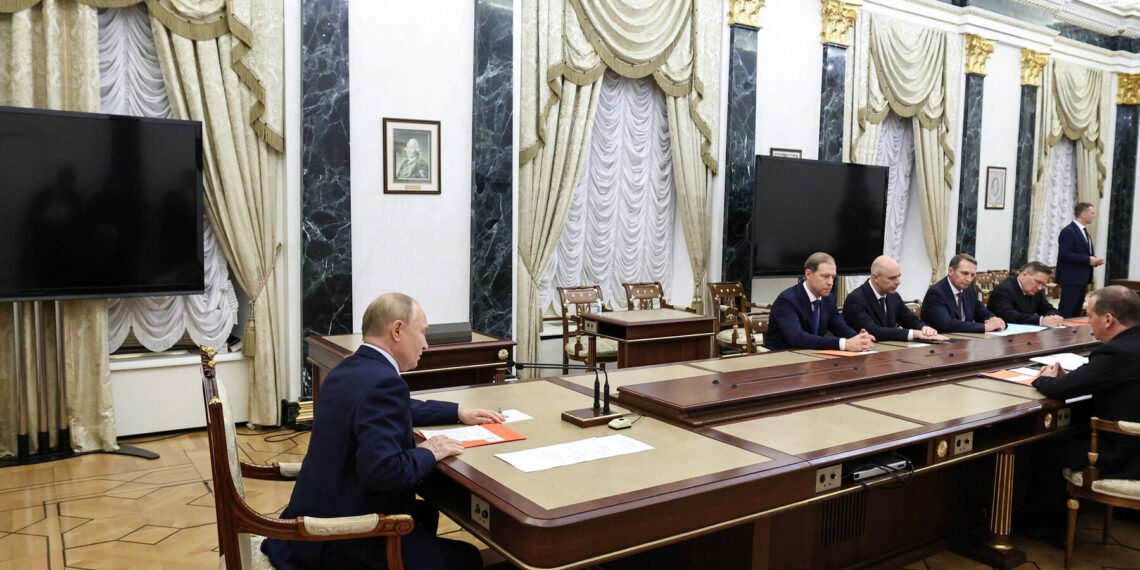The Gist:
President Vladimir V. Putin has issued strong warnings directed towards Western nations. He stated that Russia must have the right to use nuclear weapons if it faces an attack from any country supported by a nuclear power. This assertion comes amidst rising tensions between Russia and Western nations, particularly in light of the ongoing conflict in Ukraine.
Putin’s remarks underline the escalating military rhetoric in international relations, raising fears over the potential for nuclear conflict. He emphasizes that Russia’s nuclear capabilities are a crucial factor in its national security strategy. The situation presents a significant concern for many countries as discussions about nuclear deterrence and the risks associated with military confrontations gain prominence.
The Good:
Strengthened Defence Strategy: Putin’s warning might highlight the importance of strong defence mechanisms. Nations may take these words seriously and enhance their own security measures to prevent conflict escalation.
Increased Diplomatic Efforts: Countries may feel compelled to engage in more diplomatic conversations. A focus on communication and diplomacy could lead to peaceful resolutions and unmediated discussions.
Public Awareness: His threats could raise awareness among citizens about global security issues. People may start paying more attention to international relations and the need for peace.
Advocacy for Disarmament: The warnings can provoke discussions around nuclear disarmament. As fear increases, so may the demand for eliminating nuclear weapons to ensure global safety.
International Alliances: This may lead to stronger alliances among nations that oppose nuclear threats. Countries could come together to create a united front against nuclear aggression.
The Bad:
Heightened Tensions: Putin’s remarks will increase tensions between Russia and Western nations. Such threats could lead to misunderstandings and further conflicts.
Normalization of Nuclear Threats: Using nuclear weapons as a bargaining tool may become normalised. This scenario poses a grave risk that countries might feel less hesitant to deploy nuclear arms.
Fear Among Citizens: Citizens in nuclear-powered countries may grow fearful of a potential conflict. Increased anxiety could affect people’s day-to-day lives and mental well-being.
Risk of Escalation: The likelihood of military confrontations could surge. A single miscommunication might trigger disastrous consequences, putting lives at stake.
Global Instability: Countries might react defensively, leading to an arms race. The world could become even more unstable as nations rush to bolster their military capabilities.
The Take:
President Vladimir V. Putin is once again making headlines with strong statements aimed at the West. At a recent press conference, he asserted a significant stance: Russia must be allowed to use its nuclear weapons if it is attacked by a nation that is supported by other nuclear powers. This position expresses a very clear sort of nationalism and concern for Russia’s sovereignty. Putin’s words could be seen as a way to rally support at home while simultaneously making a loud declaration to the world about the seriousness of Russia’s nuclear capabilities.
This alarming rhetoric comes during a time of intense international tensions, especially related to the ongoing conflict in Ukraine. Putin insists that Russia is simply endeavouring to defend itself. However, this raises questions about the safety of other countries and whether such comments are merely aggressive posturing or a genuine reflection of Russia’s military strategy.
The backdrop of these statements includes escalating military exercises and a history of confrontations with NATO forces. By reiterating that nuclear arms could be deployed, Putin seems to be sending a signal of deterrence. He wants to ensure that Russia is not underestimated. However, these threats invite serious global concern. Many fear that endorsing nuclear action as a legitimate response to attack could lead to dangerous consequences.
The world watches with bated breath as this cold war-type behaviour resurfaces. The implications of Putin’s words could sway global alliances. Other nations backed by nuclear powers might feel encouraged to re-evaluate their strategies. Countries that might have been neutral could now take sides, possibly leading to a significant divide.
In response, it is critical for world leaders to engage in dialogue rather than escalation. Depending on the decisions made in subsequent diplomatic channels, the balance of power could shift. Various governments may ramp up their discussions around nuclear arms control and non-proliferation.
Public opinion could also play a role in shaping future interactions. Citizens may begin demanding better international communication and concrete steps towards ensuring that nuclear weapons are not used. As awareness increases, there could be calls for peaceful resolutions rather than military confrontations.
Overall, while Putin’s threats indicate a firm defensive posture, they also highlight the fragile state of international relations today. The possibility of nuclear conflict is no small matter; hence it demands immediate consideration from global leaders and policymakers. The stakes are high, and the direction taken could determine the future safety of nations worldwide, surrounding millions of lives in anticipation and concern. Hence, actions taken in the coming days could be pivotal in steering the world away from an impending crisis.
Click here to read the full article




